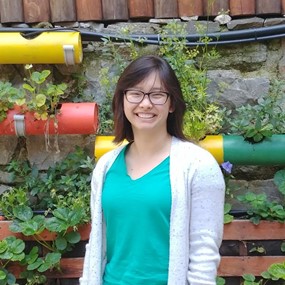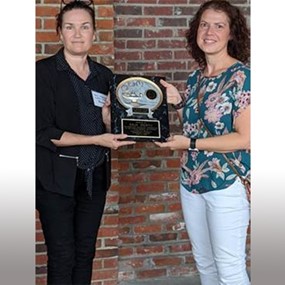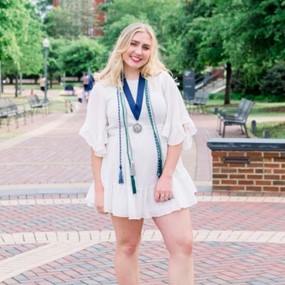Department of Music performs ‘The Dog Song’ for civil rights icon Rev. Bernard LaFayette Jr.
In celebration of Bernard LaFayette Jr.’s lifelong commitment to nonviolent social change, Auburn musicians arranged a special performance of one of his civil rights songs at his 85th birthday luncheon at the Caroline Marshall Draughon Center for the Arts & Humanities (CMDCAH).
LaFayette is a Freedom Rider, co-founded the Student Nonviolent Coordinating Committee (SNCC), served as a close associate of Dr. Martin Luther King Jr., and educates new generations each day about nonviolent social change, including as a Breeden Eminent Visiting Scholar in the Humanities at the CMDCAH.
He celebrated 85 years among friends, family and community at the CMDCAH on Tuesday. In tribute to LaFayette’s musical contributions and its deep ties with the Civil Rights Movement, the Department of Music faculty and students performed an arrangement of “The Dog Song.”
LaFayette said he loves hearing how Auburn musicians and others have put their own touch on the song. The original, co-composed by LaFayette and James Bevel in the 1960s, tells the story of two dogs – one black and one white – playing together while their owners remained segregated.
“It came to be a real model and example. If dogs can get along with each other, regardless of their color, why couldn’t the boys? The song was a manifestation, so that’s why that song became so popular,” LaFayette said. “It’s important that people learn from each other. Also, learn from the dogs and animals because they have messages that they give you as well.”
The song, also known as “Your Dog Loves My Dog” and “Dog Dog,” has been covered by musical icons such as Harry Belafonte. A recorded performance of the song by LaFayette and other SNCC Freedom Singers is available from the Smithsonian.
Khari Allen Lee, the Walt and Ginger Woltosz Endowed Professor of Practice and director of commercial music, led the Auburn arrangement. Lee said music was pivotal to the Civil Rights Movement.
“One of the key parts of those movements, one of the things that enlivens and energizes them, is music,” Lee said. “These movements don't really happen the way that we remember them, and I don't think that they will happen in the future without the power of music. Dr. Lafayette is right there on the ground and some very powerful music came through him.”
Commercial voice junior Walter Lloyd performed alongside Lee, Department of Music Chair Doug Rosener and fellow music students Anna Colson and Jack Sears. Lloyd said the song’s meaning is timeless, while the world around its performance has progressed closer to the vision it expresses.
“Whenever I'm singing a song that is not my own, I just try to do my best to capture the feeling, the emotion in the original song. He was talking about the dogs, but it has a deeper meaning if you’re paying attention,” Lloyd said. “With everything that was going on at the time, I think it was very brave to write a song like this. I’m grateful to live in a time where people can play with each other. It’s nice that that’s more of a reality now.”
LaFayette has spent his entire life advancing civil rights. From sharing a dorm at the American Baptist Theological Seminary with John Lewis to being kidnapped during a peace march in Colombia and targeted for assassination in Selma, his dedication to equality has remained steadfast for decades.
On April 4, 1968, Martin Luther King Jr. charged him to “internationalize and institutionalize” nonviolence. King would be killed just hours after that conversation.
Today, LaFayette has taught Kingian nonviolence across the world through various higher education and nonprofit institutions. As King was to LaFayette, LaFayette will be the example that future generations follow.
“Another experience I had was to learn from your adults and those who were older. That was important. And that's what I do today, is to teach children,” LaFayette said. “Be in charge of your own discharge. And then you are in total control.”
Learn more about programs and events at the CMDCAH.
Tags: Center for the Arts and Humanities Music Students Faculty







